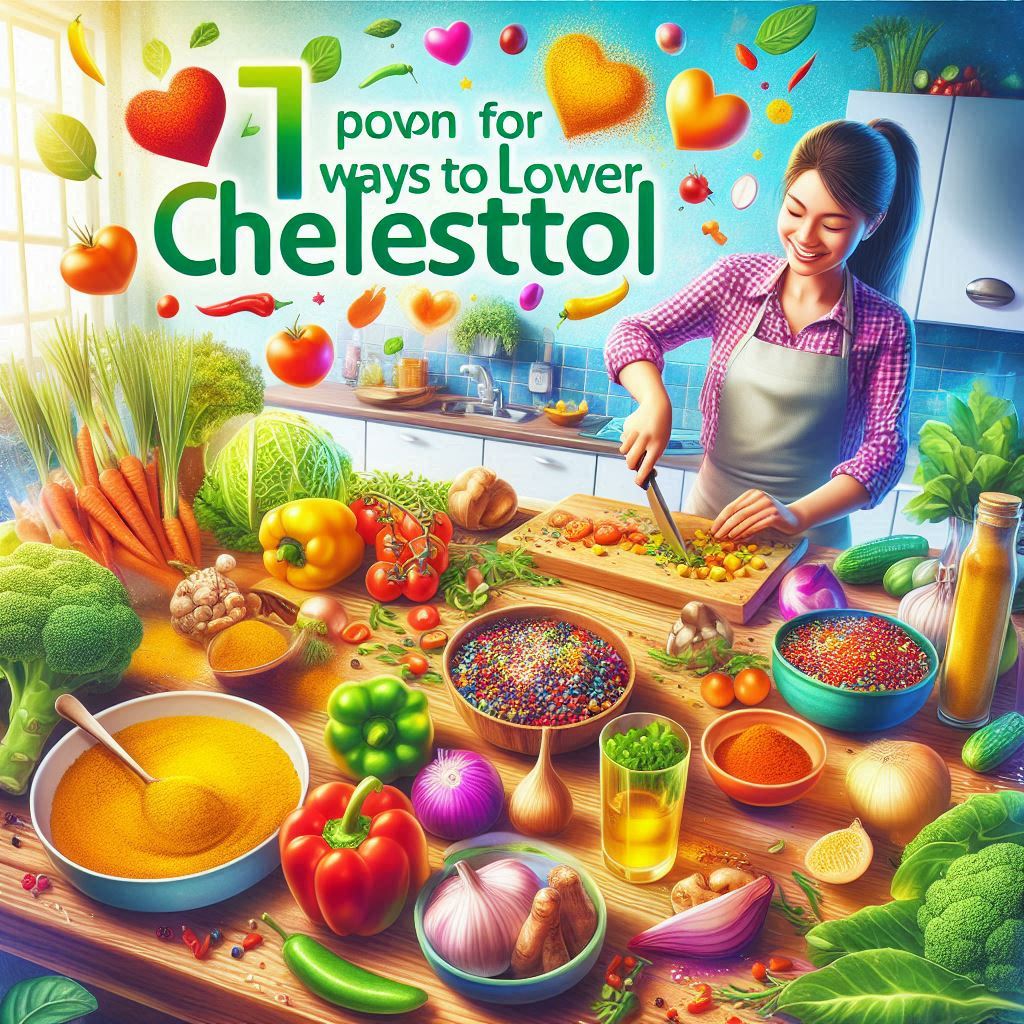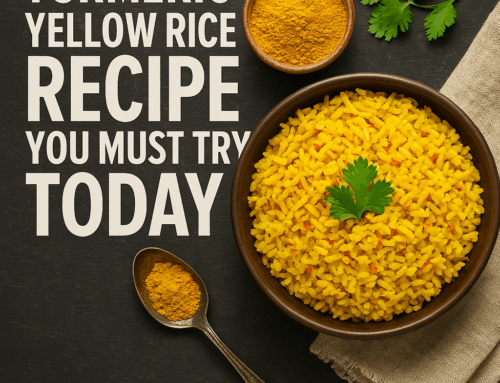
High cholesterol is a widespread health concern that quietly threatens millions of people worldwide. In the United States alone, over 12% of adults grapple with this condition, which, if unmanaged, can pave the way for heart disease, stroke, and other serious complications. While medications like statins are commonly prescribed to keep cholesterol in check, many individuals are seeking natural alternatives to support their heart health. Enter turmeric—a vibrant, golden spice that’s been a staple in kitchens and traditional medicine for centuries. Thanks to its active compound, curcumin, turmeric has emerged as a promising natural remedy for lowering cholesterol. In this article, we’ll dive into five proven ways turmeric to lower cholesterol can work wonders for your cardiovascular system. Whether you’re looking to prevent high cholesterol or manage existing levels, you’ll discover how this spice can fit seamlessly into your daily life, offering a flavorful and science-backed approach to better health.
1. Harnessing Turmeric’s Anti-Inflammatory Power
Inflammation isn’t just a buzzword—it’s a key player in the cholesterol story. Chronic inflammation in the body can damage blood vessels and trigger the oxidation of LDL cholesterol, the so-called “bad” cholesterol. Once oxidized, LDL becomes sticky and starts to build up as plaque in the arteries, a process known as atherosclerosis. This plaque narrows the arteries, restricts blood flow, and heightens the risk of heart attacks and strokes.
Turmeric steps in with its star ingredient, curcumin, a compound renowned for its anti-inflammatory properties. Curcumin works by calming down inflammatory pathways and reducing levels of markers like C-reactive protein (CRP), which often spike in people with high cholesterol. A study in the Journal of Nutritional Biochemistry found that curcumin lowered CRP in individuals with metabolic syndrome, a cluster of conditions that includes elevated cholesterol. By taming inflammation, turmeric to lower cholesterol helps stop LDL from turning into a heart-harming culprit.
But how can you make this work for you? It’s simpler than you might think. Adding turmeric to your diet—whether in a curry, soup, or even a morning smoothie—can help keep inflammation at bay. Over time, this small habit could contribute to healthier cholesterol levels and a happier heart.
Practical Tip: Stir a teaspoon of turmeric into your scrambled eggs or sprinkle it over roasted sweet potatoes for an anti-inflammatory boost.
2. Turmeric’s Antioxidant Shield
Oxidative stress sounds like something out of a science fiction movie, but it’s a real threat to your heart. It happens when free radicals—unstable molecules produced by everything from pollution to poor diet—outnumber the antioxidants in your body. These free radicals can oxidize LDL cholesterol, turning it into a sticky substance that clogs arteries and fuels heart disease.
Fortunately, turmeric is packed with antioxidants, with curcumin leading the charge. These antioxidants act like tiny shields, neutralizing free radicals before they can wreak havoc. Research published in the Journal of Medicinal Food highlights curcumin’s ability to bolster the body’s antioxidant defenses, reducing oxidative stress and protecting cholesterol from oxidation. This makes turmeric to lower cholesterol a natural protector of your arteries.
Beyond turmeric, you can amplify this effect by pairing it with other antioxidant-rich foods. Think blueberries, dark chocolate, or a handful of almonds.
Together, they create a powerhouse of protection that keeps your heart humming along.
Practical Tip: Whip up a turmeric latte with almond milk and a dash of cinnamon—both delicious and loaded with antioxidants to combat oxidative stress.
3. Supporting Liver Health with Turmeric
Your liver is the unsung hero of cholesterol management. It produces cholesterol to help build cells and hormones, but it also clears excess cholesterol from your bloodstream by turning it into bile. When the liver isn’t working at its best—perhaps due to poor diet or toxin exposure—cholesterol levels can spiral out of control, with LDL rising and HDL dropping.
Turmeric comes to the rescue by supporting liver function in multiple ways. Curcumin helps shield the liver from inflammation and oxidative damage, two factors that can impair its ability to regulate cholesterol. It also boosts bile production, which we’ll explore more in the next section. A study in the Journal of Clinical Biochemistry and Nutrition showed that curcumin improved liver function in people with non-alcoholic fatty liver disease (NAFLD), a condition often tied to high cholesterol. By keeping your liver in top shape, turmeric to lower cholesterol ensures that excess LDL doesn’t linger in your system.
Incorporating turmeric into your routine doesn’t have to be complicated. A little goes a long way, and it’s a versatile spice that pairs well with both sweet and savory dishes.
Practical Tip: Blend turmeric into a detox smoothie with spinach, ginger, and a squeeze of lemon to give your liver some extra love.
4. Boosting Bile Production for Better Cholesterol Control
Bile might not be the most glamorous topic, but it’s a big deal when it comes to cholesterol. Produced by the liver and stored in the gallbladder, bile breaks down dietary fats—including cholesterol—so your body can either absorb or excrete them. If bile production lags, cholesterol can build up in your bloodstream, tipping the scales toward higher LDL levels.
Turmeric shines here by stimulating bile production. Curcumin revs up the liver’s bile-making machinery, helping your body process fats more efficiently and flush out excess cholesterol. A study in the Indian Journal of Physiology and Pharmacology found that curcumin increased bile secretion in animal models, pointing to its potential in humans. This enhanced bile flow means less cholesterol gets reabsorbed into your system, making turmeric to lower cholesterol a smart choice for heart health.
You can tap into this benefit by using turmeric in meals that complement its fat-digesting power. Think dishes with healthy fats like olive oil, nuts, or fatty fish—the kind of foods that pair perfectly with a sprinkle of golden spice.
Practical Tip: Drizzle turmeric-infused olive oil over a salad with avocado and walnuts to support bile production and enjoy a heart-healthy meal.
5. Directly Reducing LDL Cholesterol
Sometimes, the simplest explanation is the most powerful: turmeric can directly lower LDL cholesterol. Studies have shown that curcumin doesn’t just tackle inflammation or oxidative stress—it also targets cholesterol itself. By inhibiting cholesterol absorption in the gut and promoting its excretion, turmeric helps shift your lipid profile in a healthier direction, reducing LDL while often boosting HDL.
The evidence is compelling. A study in the Journal of Nutrition found that curcumin supplementation cut LDL cholesterol in people with metabolic syndrome. Another, published in the American Journal of Cardiology, showed that turmeric extract lowered LDL in patients with coronary artery disease. These findings underscore why turmeric to lower cholesterol is more than a folk remedy—it’s a research-backed strategy.
How much turmeric do you need? Studies often use 500 mg to 2,000 mg of curcumin daily, but absorption is key. Curcumin alone isn’t easily absorbed, so pairing it with black pepper (thanks to its compound piperine) can boost its effectiveness by up to 2,000%. Whether you opt for a supplement or spice up your cooking, this combo can make a real difference.
Practical Tip: Add turmeric and a pinch of black pepper to a warm bowl of lentil soup for a tasty, cholesterol-lowering meal that maximizes curcumin’s benefits.
Conclusion
Turmeric isn’t just a spice that adds color to your plate—it’s a natural powerhouse for lowering cholesterol and supporting heart health. From fighting inflammation and oxidative stress to enhancing liver function, boosting bile production, and directly reducing LDL cholesterol, turmeric to lower cholesterol offers five proven pathways to a healthier you. The science backs it up, and the possibilities for incorporating it into your life are endless.
Ready to give it a try? Start small—sprinkle turmeric into your meals, sip on a golden tea, or explore a curcumin supplement with piperine. Consistency is what counts, and over time, this golden spice could become your heart’s best friend. Of course, if you’re on cholesterol-lowering meds or have health concerns, check with your doctor first. With turmeric by your side, you’re not just seasoning your food—you’re taking a proactive step toward better cholesterol and a stronger heart.






